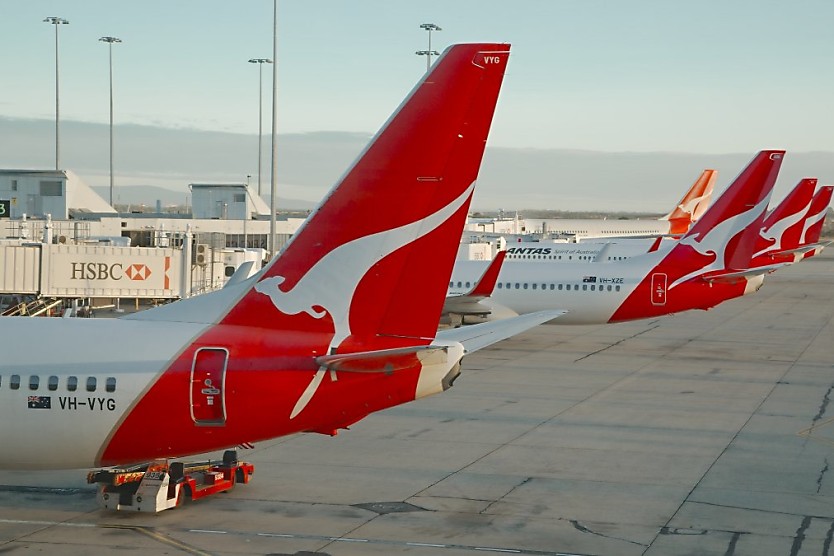Qantas fined $90m for illegal sackings
SHARE THIS ARTICLE

The national carrier has been penalised $90 million by the Federal Court for the illegal outsourcing of around 1,800 ground workers during the pandemic.
Editor’s note: This story first appeared on HR Leader’s sister brand, Australian Aviation. It has also been updated to include Qantas' statement, which was not available at the time the story was first published.
The fine, around 75 per cent of the maximum penalty of $121 million, was imposed by Justice Michael Lee on Monday (18 August) morning. Of this, $50 million will be paid to the Transport Workers’ Union, with a further hearing to determine how the remaining $40 million should be distributed.
This is in addition to the $120 million in compensation awarded last year to the affected ground workers, who were found to have been illegally sacked or redeployed in 2020–21 in contravention of the Fair Work Act, a ruling that was upheld all the way to the High Court.
In His Honour’s judgment, Justice Michael Lee – who had previously expressed frustration at Qantas’ “lack of candour” – again criticised the Flying Kangaroo for how it had handled the case, including the fact that now-CEO Vanessa Hudson had not appeared in the witness box, and expressed doubt that then-CEO Alan Joyce had not been directly involved in the decision.
According to Justice Lee, the large penalty was necessary in part to deter repeat behaviour, both at Qantas and to set an example for other employers.
“The need for specific deterrence to ensure change does take place and takes root at Qantas is highly significant,” he said.
“The demands of general deterrence to other corporations (particularly large publicly listed corporations) is also centrally important, and a penalty must reflect the public interest in ensuring, as Qantas submitted, that this case is, in truth, a real deterrent: a ‘wake-up’ call on what the law is; on how the issues in such cases should be considered in advance, and how litigation should be prepared for and run.”
Lee J also cited the scale of the illegal sackings, the financial advantage Qantas had hoped to gain, the size and financial standing of Qantas itself, and the involvement of senior management as considerations for the size of the penalty.
His Honour did note, however, that several factors mitigated the size of the penalty, including the “existential crisis” faced by Qantas at the time, the smaller financial gain it actually accrued from the sackings, the subsequent compensation, the adverse publicity, and subsequent changes in the airline’s corporate culture and governance.
“The price on contravention given all the circumstances must be very large, but it must reflect my assessment of what is truly necessary to achieve the object of deterrence,” Lee J said.
“Further, the process must result in a penalty that bears some reasonable relationship with the maximum of $121,212,000.
“Taking all relevant factors into account, a penalty of no less than $90 million appears necessary to achieve the objects of deterrence (slightly less than 75 per cent of the maximum penalty).”
Lee J also said the payment of a large part of the penalty to the TWU is warranted, given its prominent role in litigating the case against Qantas.
“I am satisfied such a course will facilitate and promote both specific and general deterrence. As the union correctly submitted, it will send a message to Qantas and other well-resourced employers that ‘not only will they face potentially significant penalties for breaches of the [FWA], but that those penalties will be provided to trade unions to resource those unions to fulfil their statutorily accorded roles as enforcers of the [FWA] and to seek the enhancement of the terms and conditions of employment and the industrial interests of employees whom they represent’,” His Honour said.
In a statement, the Qantas Group said that it accepts the Federal Court’s decision today on the penalty for unlawfully outsourcing its ground handling function in 2020.
“Today’s judgement holds us accountable for our actions that caused real harm to our employees,” the national carrier said.
Qantas Group chief executive Vanessa Hudson said: “We sincerely apologise to each and every one of the 1,820 ground handling employees and to their families who suffered as a result. The decision to outsource five years ago, particularly during such an uncertain time, caused genuine hardship for many of our former team and their families.”
“The impact was felt not only by those who lost their jobs, but by our entire workforce. Over the past 18 months we’ve worked hard to change the way we operate as part of our efforts to rebuild trust with our people and our customers. This remains our highest priority as we work to earn back the trust we lost.”
The $90 million penalty will, Qantas said, be paid in accordance with the orders of the Court, and noted it has also paid $120 million into the compensation fund for all affected former employees, which is being administered by Maurice Blackburn.
RELATED TERMS
When a company terminates an employee's job for improper or illegitimate reasons, it is known as an unfair dismissal.
